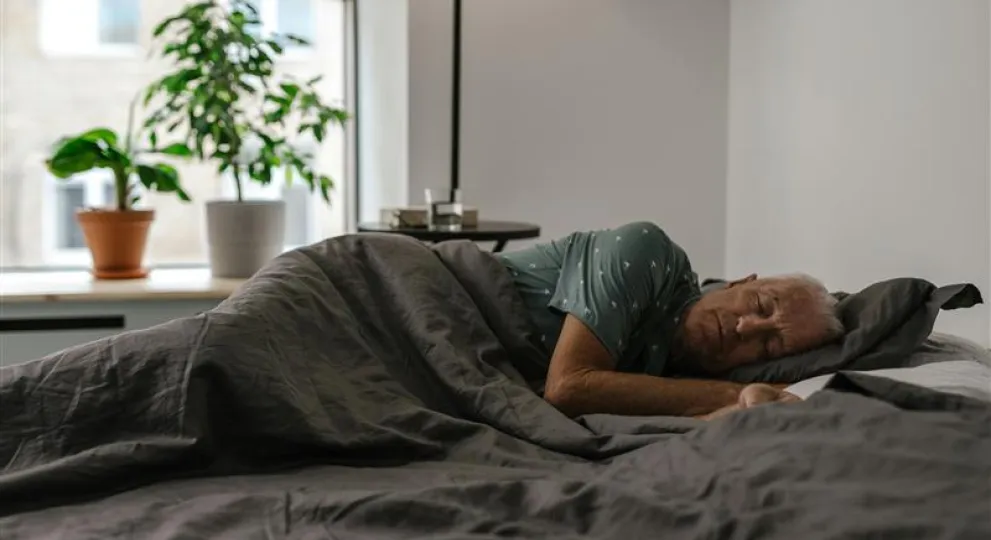Sleep Strategies to Support Caregivers
Sleep Strategies to Support Caregivers

If you’re caring for someone with cancer, it can be challenging to get the quality sleep you need.
Many family caregivers also work full-time outside the home. When they are not at work, they often are busy at home providing care.”
Studies show caregivers often sleep less than the recommended seven hours a night. Trouble sleeping is a common challenge among caregivers, and as many as 3 out of 4 caregivers for people with cancer report experiencing sleep disturbances.
Prioritizing sleep isn’t a luxury, it’s essential to support your overall health and ability to provide quality care for your loved one. Poor sleep can affect mood, risk for depression and anxiety, and even your immune health.
“You can’t pour from an empty cup,” reminds Donna Benton, associate professor of gerontology and director of the USC Family Caregiver Support Center. “Prioritizing sleep helps you care better, longer.”
Consider trying these Microsteps to help you prioritize rest while still providing caregiving support to a loved one.
Establishing a short nightly wind-down routine.
A consistent pre-sleep routine can signal your body that it's time to rest. Consider devoting time to calming activities before bed, such as reading, gentle stretching, listening to soothing music, or deep breathing.
Taking naps when you can if you feel tired during the day.
Even short naps can improve your energy level. If you’re at home, consider making your room dark and allowing yourself some time to rest during the day.
Trying to go to bed around the same time every night.
As a caregiver, a regular bedtime isn’t always possible, and you may sometimes have to be up during the night. But doing your best to maintain a consistent sleep schedule is important for supporting your overall health.
Setting aside a few minutes in the evening to meditate or do a mindfulness exercise
Research has shown that mindfulness exercises can help caregivers lower stress and feel calmer, which may help you wind down and relax before bedtime.
Taking short movement breaks throughout the day rather than waiting for scheduled exercise time.
Incorporating moderate exercise – such as short walks or an exercise video – into your daily routine adds movement without requiring a large block of free time. Research has shown that regular physical activity among caregivers may help with falling asleep faster and sleeping better.
Avoiding caffeine around 12 hours before bedtime and avoiding alcohol around 5 hours before bedtime.
Coffee and alcohol both disrupt deep sleep cycles. While alcohol may cause you to fall asleep faster, it may disrupt the quality of your sleep, leading to more frequent awakenings during the night.
Asking a friend or family member to take over caregiving for an hour to give you a break.
Consider using that hour of respite to nap, relax, exercise, pamper yourself at a salon or have a catch-up with a friend.
Developed with Thrive Global













